Bookshelf
Literary recommendations from the last few years
Last Updated: 12/30/2024
Reading has long been a favorite pastime of mine. I appreciate few activities more than curling up with a good book, particularly Historical Fiction, Science Fiction/Fantasy, or Biography. But even more enjoyable than consuming books—sharing them.
Here are some of my favorites from the last few years (in no particular order):

When We Cease to Understand the World
Benjamín Labatut
If matter were prone to birthing monsters of this kind, were there correlations with the human psyche?
If you like math, science, or history this is a must-read. A collection of gripping stories about brilliant inventors who made terrible inventions, from Zyklon B to the atom bomb, and the mathematicians and physicists who made it all possible. Labatut's work explores the thin line between genius and madness, discovery and destruction. And it also does this on a meta level, blurring fact and fiction. As we push the boundaries of knowledge, our traditional ethical frameworks begin to break down; some things are not meant for humans to know. Translated from Spanish, this novel has among the most beautiful prose I've ever read.
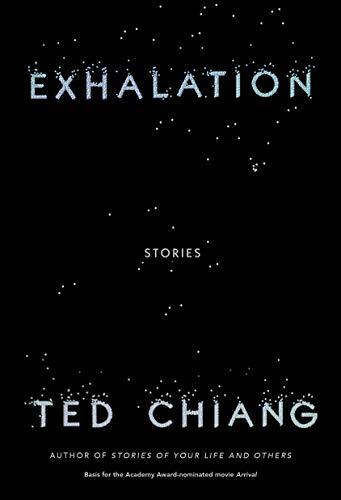
Exhalation
Ted Chiang
Contemplate the marvel that is existence, and rejoice that you are able to do so.
After the masterwork that is "The Story of Your Life," I finally got around to devouring Chiang's second collection of short stories. "Exhalation" doesn't disappoint, offering several contemplative stories considering what it means to be human through the lens of technology and scientific exploration. The titular tale follows a scientist dissecting his own mechanical brain of gears to understand consciousness. Other stories play with the medium—such as the Arabian-Nights style time-travel fable "The Merchant and the Alchemist's Gate". For me Chiang's work is characterized by his ability to blend technical concepts with deep emotion; each of these stories serves as a poignant meditation on some aspect of technology, and its relationship with determinism and free will, family and memory. Like with his first collection, these stories aren't simply clever sci-fi premises, and they're also not tales of technology-gone-wrong. Rather, they're reflections on our place in the universe—a "universe that began as an enormous breath being held", and one where "until this great exhalation is finished, our thoughts collectively live on."

The Chip War
Chris Miller
In the age of AI, it’s often said that data is the new oil. Yet the real limitation we face isn’t the availability of data but of processing power.
I spent a great deal of time this year researching the semiconductor industry, including traveling to Taiwan on an international research fellowship to learn about it on the ground. This space is fascinating to me in large part because it represents a total intersection of geopolitics and technological innovation. For all our talk of cloud computing and metaverses, we're still fundamentally dependent on physical hardware—and the places that create it. If you're at all interested in the industry that founded Silicon Valley, reshaped the global economy by enabling most modern technologies, and is driving global technological competition today, this singular read will give you a fantastic introduction.

The Paper Menagerie
Ken Liu
Each moment and everywhere, civilizations rise and fall, much as the stars are born and die.
I'm a huge fan of short story collections—and this one, recommended by a student I taught this summer, by Ken Liu, is stellar. Liu's collection explores foundational human questions about identity and memory. Much how Bradbury's "Illustrated Man" ties together his short stories, Liu's collection serves as a meditation on the act of translation—not just of language, but of culture. Part sci-fi, part history, these tales are consistently compelling. Some, like "State Change," are clever. Some, like "The Perfect Match," reflect Black Mirror-esque tales of technology. Some, like "The End of History," combine technology with our painfully human capacity for denial of truth. And the titular story is devastating.

Steve Jobs
Walter Isaacson
If you act like you can do something, then it will work.
Just because something is cliché doesn't mean it's bad, and hype is occasionally deserved. It's been a long time coming, but the biography of Jobs by Isaacson is a must-read for any technologist or wannabe founder for a reason. The story here isn't simply one of immense success after countless failures and setbacks, nor is it one of awe for a person without recognition of their shortcomings. Steve Jobs is a book that recognizes the many, many flaws of the person it's about and asks fundamental questions about which of these were deserved or necessary for success, and which were not.
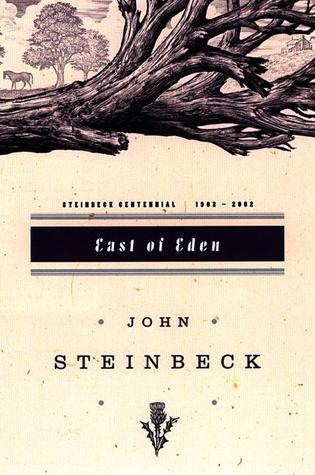
East of Eden
John Steinbeck
All great and precious things are lonely.
A Steinbeck novel inspired by my "do-it-yourself Directed Studies" journey, East of Eden is an American classic that may be one of the best tellings of the fundamental flaws of human character. Like Cain and Abel before them, evil and villainy appear to be reborn on the farms of the Northeast and the golden West. The foundation of East of Eden is the idea of inherited sin—whether we're doomed to repeat the patterns of our predecessors. Steinbeck's novel explores free will, and asks—in our modern era of deterministic algorithms and genetic predisposition—are we truly free to choose our path?

The Fifth Season
N.K. Jemisin
When the reasoning mind is forced to confront the impossible again and again, it has no choice but to adapt.
It's rare that a fantasy novel is truly revolutionary—but The Fifth Season, first novel in the Broken Earth trilogy, may be that. A completely vivid and real-feeling world, a mysterious protagonist and mysterious circumstances lead to major reverberations. A unique magic system and unique plot are gorgeously written with distinctive set dressing. Jemisin's world-building serves as a powerful allegory for climate change and societal collapse, but what's standout is how she manages to make these huge and often heavy-handed themes deeply personal through her characters' experiences in an apocalyptic setting.

When Breath Becomes Air
Paul Kalanithi
Years ago, it had occurred to me that Darwin and Nietzsche agreed on one thing: the defining characteristic of the organism is striving.
When Breath Becomes Air shares the words of a person aware they don't have long for this world. Kalanithi's memoir, written during his final months as a neurosurgeon facing terminal lung cancer, examines his mortality and muses on life's biggest questions. In the end, what was all his effort for? Kalanithi reflects on his entire life of genuine achievement—graduating from Stanford, a master's in English at Cambridge, medical school at Yale—and then discovering he is going to die. His writing is exquisite, with vivid descriptions of his work as a neurosurgeon; the life-and-death decisions he made on a regular basis, and the life-and-death situation he now finds himself in. Yet while you'd expect a book that is essentially meditating on death to be depressing, I found that When Breath Becomes Air was ultimately an uplifting reflection on the joy of life and what makes it meaningful.

Gödel, Escher, Bach: An Eternal Golden Braid (DNF)
Douglas R. Hofstadter
Meaning lies as much // in the mind of the reader // as in the Haiku.
I bought my copy of G.E.B. at a small bookstore in Shanghai, and then proceeded to read bits of it at a snail's pace. It's nearly impossible to describe this book in a single sentence. My best attempt? It's about 'formal systems' and the interconnectedness of math (number theory!), logic, cognitive neuroscience, linguistics, and music—ultimately attempting to explain "how it is that animate beings can come out of inanimate matter". G.E.B. does this through puzzles, wordplay, dialogues, and even custom programming languages. It's brilliant. I wouldn't go so far as to say it's something everyone should read, but if you like the work of Godel, Escher, or Bach, you should definitely give G.E.B. a chance.

Tress of the Emerald Sea
Brandon Sanderson
Do you know how many grand romances would have avoided tragedy if the hero had thought, "You know, maybe I should ask her if she likes me first"?
Tress was a acutely fun standalone read, a whimsical adventure in the style of “The Princess Bride”—but if the protagonist was actually the princess Buttercup. What differentiates Tress from other similar fantasy fare is the choice of perspective; the entire novel is narrated by a character named Hoid, an ancient and integral member of Sanderson’s universe who imbues the story with wit. Through him, Sanderson muses in thought-provoking philosophical tangents about memories, bravery, opportunity, and empathy. Tress is a window-washer, and her story reminds us that many of our best ideas can come when our minds are wandering; when washing, walking, working, relieving, and running. It's a reminder to allow more opportunities for spontaneity.

Tomorrow, Tomorrow, and Tomorrow
Gabrielle Zevin
This is what time travel is. It’s looking at a person, and seeing them in the present and the past, concurrently. And that mode of transport only worked with those one had known a significant time.
Any book that I read in a single day has a high chance of making on to this list, and that is exactly what happened with this novel on a train ride back from D.C. one August afternoon. Tomorrow, Tomorrow, and Tomorrow—after the famous Shakespeare line—centers on a platonic relationship between two friends across decades of their lives as they create games together and the challenges they confront. I considered several of the themes and ideas in this novel for weeks afterwards, such as one of the early games a character creates, Solution. In this "game", you solve Tetris-like puzzles to earn points until you realize you’re actually building weapons for the Third Reich—solution is the “final solution”, and you’re complicit. Premises like these are imaginative and thought-provoking, and gave me more to think about regarding thorny topics such as cultural appropriation. Whether you understand the references to Ghibli and games or not, this is a quick worthwhile reading.

The Overstory
Richard Powers
This is not our world with trees in it. It's a world of trees, where humans have just arrived.
The Overstory is an eco-fiction novel about trees—and the lives of dozens of people who become intertwined in a journey of environmental science and activism bigger than themselves. It begins with eight short stories about characters ranging from the daughter of a Chinese immigrant to an intellectual property attorney. An artist. A programmer. A Vietnam veteran. The only universal thread among their stories—the presence of nature. At times, I struggled to make it through sections of The Overstory, as it is dense, and occasionally dull. I typically don’t recommend any book that I don’t LOVE every part of. But Powers’ Overstory isn’t any book. It’s one of the few novels that, since finishing, I am constantly reminded of. Staring at a massive tree trunk in the Muesum of Natural History. Walking over a gargantuan stump in Rotorua. Re-reading the final epigraphs on a beach. Making jokes about a large oak on Hillhouse avenue. The prose is beautiful and the message poignant, with descriptions so vivid you are transported into the forest. You can almost see the light breaking through the leaves, smell the pine needles and the damp moss. I have rarely felt more connected to nature.

The Anthropocene Reviewed
John Green
Our obsessive desire to make and have and do and say and go and get—six of the seven most common verbs in English—may ultimately steal away our ability to be, the most common verb in English.
I haven’t loved all of John Green’s most famous novels. But I will enthuse about this one. The Anthropocene is the current geological age, in which human activity has profoundly shaped the planet and its biodiversity. This incredibly heart-felt collection of short essays about the Anthropocene is a moving deep-dive into Green’s mind regarding everything from Monopoly to Air Conditioning to Dr. Pepper to Nathan’s Hot Dog Eating Contest. Velociraptors, Sunsets, QWERTY keyboards, The Penguins of Madagascar. Random? Perhaps. And yet so incredibly, almost surprisingly meaningful. I learned a bunch of random Wikipedia facts, but I was also pushed to consider our world in new and refreshingly optimistic ways. To embrace the irony of reviewing a book about reviews, I rate The Anthropocene Reviewed 4 1/2 stars!

Range: Why Generalists Triumph in a Specialized World
David Epstein
We learn who we are in practice, not in theory.
This book is one of the primary reasons I'm studying what and where I am. In an era obsessed with "10,000 hours", Epstein makes a case for delayed hyperspecialization and the liberal arts education. Through anecdotes about artists, athletes, scientists, and CEOs, Range explores how breadth of experience—not simply depth—leads to creativity and innovation. Like in Steve Job's famous commencement speech about "connecting the dots", he argues that working across domains can prove invaluable for your future in ways difficult to predict. The book's exploration of a "wicked" world describes how some skills transfer predictably from practice to performance, while others require adaptability that only comes from diverse experiences. Range is an essential read for anyone with varied interests and a desire to leverage them to the fullest.

The Story of Your Life
Ted Chiang
It's essential that you behave as if your decisions matter, even though you know they don't. The reality isn't important: what's important is your belief, and believing the lie is the only way to avoid a waking coma. Civilization now depends on self-deception. Perhaps it always has.
Arrival is one of my all-time favorite films, and the titular short story within this collection inspired it. The tale of a linguist and a physicist trying to interpret the language of seemingly-peaceful aliens is just as gripping as within the film, but in written form, the focus is less on the geopolitical conflict and more on the characters. Whether or not you know when something is happening, the emotional moments hit hard. And perhaps that's the point. The premise of a novel not told linearly has never been done this well. Chiang weaves a story of love and loss through a science fiction filter that gives us so much to think about, from the existence of free will to the nature of our human perception of time. You can read each of these stories in less than an hour, and if you have a spare hour, you should.

The Pillars of the Earth
Ken Follett
The most expensive part of building is the mistakes.
If you had told me one of my favorite books of 2023 would be a 1000 page epic about the building of a 12th-century English cathedral, I would have found that unlikely. Yet, when I was about to embark on a full-day flight, my mom recommended Pillars as one of her favorite novels from when she was in college. So I downloaded it to my Kindle. And I couldn't put it down. Pillars is the quintessential historical fiction novel. While it is obstensibly about the building of a church, the book is actually about the people who build it. This process takes multiple generations and so the characters of this world take center stage, and the challenges they face are incredibly compelling. I also enjoyed learning more about the ways in which the church and government were interlinked in this time, particularly the role of a Prior and his monks in local governance. Follett plotted Pillars well; despite its length, the tome moves at a fast pace and events early in the novel are not forgotten, often having implications dozens of chapters later. On multiple occasions I was happily surprised to realize that some character that was introduced earlier in some other context had returned to the story in a new context. While there is true evil in this story, what I find scary about the incredibly hateable villians in Pillars is that they are not Voldemort. Civil war is the end of justice, and people act in horrifying ways that are historically accurate to their time. Like Game of Thrones, there is a significant amount of graphic violence. Also like Game of Thrones, these moments are often used to great effect—you feel uncomfortable, upset, even angry. And it makes any moments of triumph all the more worthwhile. If the length and violence aren't turn-offs for you, and you're interested in medieval history, Pillars won't disappoint. And while each story is completely self-contained and takes place centuries apart, the sequels A World Without End and A Column of Fire are also incredible.

Anything You Want
Derek Sivers
Don't be on your deathbed someday, having squandered your one chance at life, full of regret because you pursued little distractions instead of big dreams.
From a page-to-impact perspective, Anything You Want may be one of the most meaningful books I’ve read. And clocking in around 100 pages, it can be read in less than an hour. Anything You Want is the story behind starting a small company called “CD Baby” and the lessons that Derek Sivers learned from that experience, distilled into a short read. He offers an abundance of great business advice, but also various meaningful insights on work and life. Some of my favorites: "Starting with no money is an advantage. You don’t need money to start helping people." "Success comes from persistently improving and inventing, not from persistently promoting what’s not working." "Your business plan is moot. You don’t know what people genuinely want until you start doing it." "You can’t please everyone, so proudly exclude people." And "The real point of doing anything is to be happy, so do only what makes you happy." Anything You Want also contains some spicy takes and opinions Sivers has that may never be relevant to what you’re doing. But he has a clear focus on what’s important: "Never forget why you’re really doing what you’re doing. Are you helping people? Are they happy? Are you happy? Are you profitable? Isn’t that enough?" As Sivers, says—“ultimately, life is about what you want to be, not what you want to have.”

The Nix
Nathan Hill
Seeing ourselves clearly is the project of a lifetime.
The Nix opens with the parable of the blind men and the elephant, in which some blind men touch the leg, snout, or tusk of an elephant and assert that an elephant is therefore sharp, long, or smooth. A king laughs at them for making incorrect observations—but as Nathan Hill points out, the blind men are technically right about the individual parts they experienced; they’re just not able to see the greater whole. This reminded me of a conversation I had recently where a friend described human perception as three concentric circles—one for the stuff we know, one for the stuff we know we don’t know, and one for the stuff we don’t know we don’t know. Much of The Nix is about what takes place in that third circle; the things people don’t know about themselves, a person’s struggle to reconcile with their inheritance of generational trauma, the socio-political conflicts that shape our world. It’s a captivating and thought-provoking novel that explores these complexities of familial relationships and identity. As Hill writes, "Sometimes we’re so wrapped up in our own story that we don’t see how we’re supporting characters in someone else’s." The story follows Samuel Andresen-Anderson (not a typo), a failed writer who tries to reconnect with his estranged mother Faye. As he delves deeper into his mother's past, he uncovers pain and shame, the secrets and sorrows that have shaped his own life in ways he hadn’t seen. Hill has a standout ability to craft dynamic and fully fleshed-out characters. Both Samuel and Faye are flawed, and their relationship is messy and complicated. There are also dozens of additional supporting characters with point-of-view chapters. The Nix excels at weaving together multiple storylines and time periods to create a rich narrative—telling the tale of dozens of other characters, many of whom have chapters from their perspective, and jumps across decades. The Nix is also incredibly timely, with many observations on American life, culture, and society—such as "It’s no secret that the great American pastime is no longer baseball. Now it’s sanctimony." There’s a far-right presidential candidate who makes the most of a scandal (the “Packer Attacker!”), a student who commits every logical fallacy attempting to justify why she plagiarized her essay, commentary on the superficiality of social media, and discussion on the psychology of advertising. For example, among my favorite quotes in the book (there are too many) describes how extremism can shape narratives within our media: "Imagine a single drop of water: that’s the protest. Now put that drop of water into a bucket: that’s the protest movement. Now drop that bucket into Lake Michigan: that’s Reality. But the danger of television is that people begin seeing the entire world through that single drop of water. How that one drop refracts the light becomes the whole picture." Hill's prose is sharp and evocative. While there are slow segments—the book takes a complete narrative tangent for an entire part—it is also incredibly creative (with a choose-your-own-adventure subsection), and overall a beautifully written novel that will leave you thinking long after finishing it.

The Count of Monte Cristo
Alexandre Dumas
Life is a storm. You will bask in the sunlight one moment, be shattered on the rocks the next. What makes you a man is what you do when that storm comes.
Few stories capture human vengeance with the nuance of The Count of Monte Cristo. Dumas' magnum opus follows Edmond Dantes, a sailor (wrongfully) imprisoned who escapes to reinvent himself as the incredible Count who orchestrates an elaborate scheme of revenge against those who betrayed him. What begins as a straightforward revenge saga transforms into a commentary on justice and forgiveness, and what truly brings satisfaction. Like Pillars of the Earth on this list, this is a tome that rewards patient reading. Dantes' transformation reveals the cost of revenge; as he works to ruin his enemies, he arguably becomes what he sought to destroy. While it was written in 1844, this novel remains wildly relevant in its exploration of identity and wealth, mercy and cruelty. If you're willing to commit, The Count of Monte Cristo contains evidence of the cost that revenge exacts on the avenger, and ultimately one of literature's top character arcs.

"The Poppy War"
R.F. Kuang
“War doesn't determine who's right. War determines who remains.”
"The Poppy War" is a unique fantasy novel with a heavy dose of history. In the opening chapters I thought it would play out similarly to Harry Potter—suffice to say, it most definitely did not. It's fundamentally a war story "drawing on the Second Sino-Japanese war—one of the darkest and bloodiest moments in history." From recreating events like the "Rape of Nanjing" to the use of drugs like Opium as a way to control rural populations, this grimdark book explores the horrors of war and its implications. While originally I was rooting for the protagonist, she makes some seriously morally questionable decisions that caused me to feel conflicted about her. But I liked that direction, and devoured the rest of the series because I was curious about where Kuang would take the story. I was not disappointed.

"Dune"
Frank Herbert
“The mystery of life isn't a problem to solve, but a reality to experience.”
The Dune movie had substantial hype going into it, so I decided to finally read the book. It's more of a fantasy space opera with a futuristic desert setting than a true technology-based story, but from a multitude of factions to deep mythology, Herbert clearly spent considerable time forming his world. The political machinations are many, focusing around obtaining control over the production of spice. The themes are rich and remain relevant—from the value of religion, to ecological and environmental issues, to the consequences of colonialism—these ideas are woven into the fabric of the story and act as many of the character's motivations. Herbert's is an old novel, and at times shows its age. But if you're into science fiction and looking for a book with both an all female political society and a talking prophetic baby, Dune is for you. Plus, sandwurms!
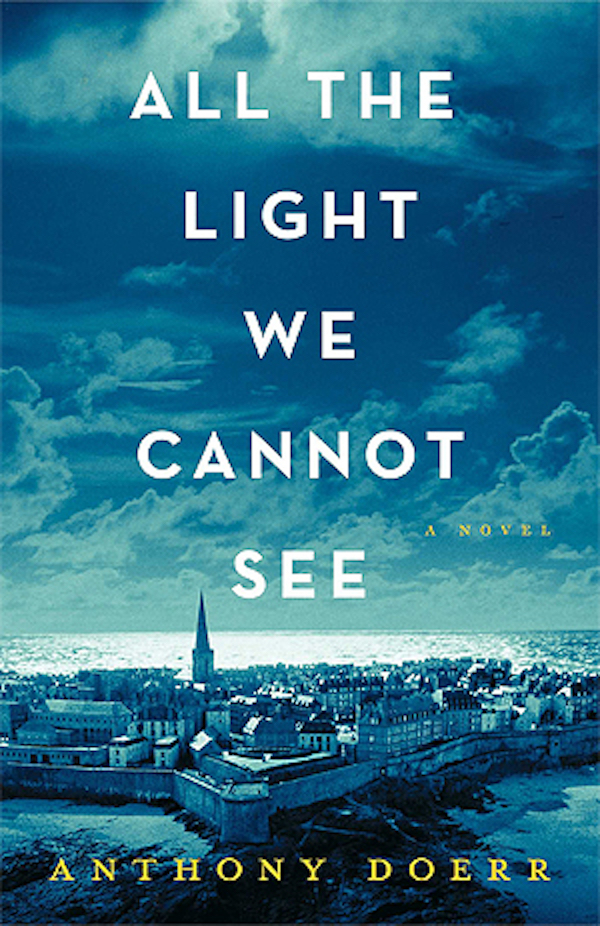
"All the Light We Cannot See"
Anthony Doerr
“Open your eyes and see what you can with them before they close forever.”
It's not hard to understand why this won the Pulitzer prize. In All the Light We Cannot See, the lives of a blind French girl and a German engineer from the Hitler Youth intersect during the Holocaust of World War II. War pushes them in different directions as they come of age, and the book plays with time and space to thoroughly explore its endearing characters and evoke feelings within the reader. This novel has among the most beautiful prose I've read, rivaling "The Name of the Wind" for how closely it resembles poetry at times. That amazingly detailed prose is a double-edged sword. But I am truly glad I read it. The vivid depictions of the world and the light within it contrasts with a main character's lack of vision. It's a deeply melancholic and introspective book that sometimes relies on the reader to form their own interpretation. Bittersweet and heartwarming, and with chapters averaging under two pages, it goes by quickly once you're sucked in.
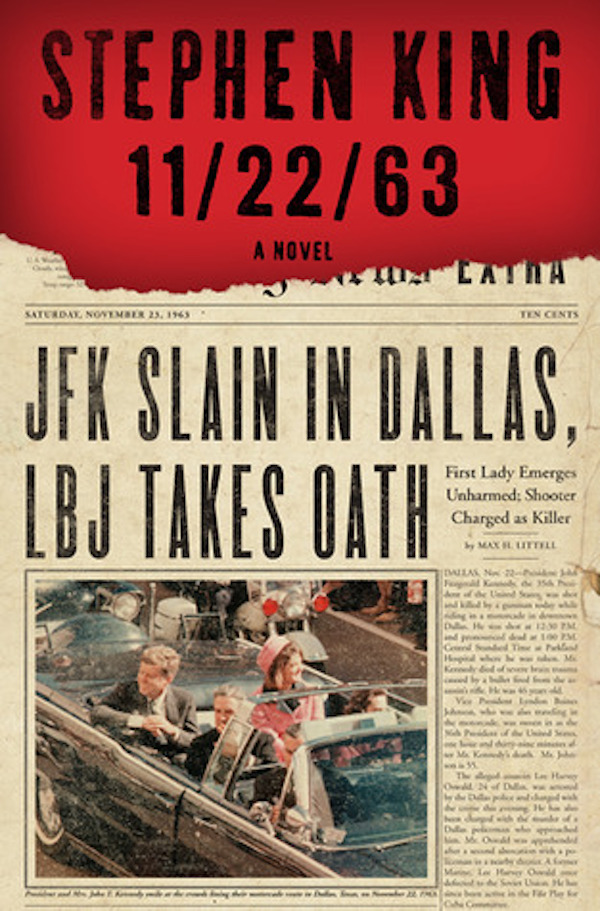
"11/22/63"
Stephen King
“We never know which lives we influence, or when, or why.”
What would you do if you could travel back in time and save President Kennedy from assassination? What would be the ramifications of that? Those are the questions "11/22/63," an intriguing historical fiction novel with a bit of time-travel thrown in, is based on. King spent years researching the time period of the early 60's to write this book, and it shows. It is easy to get lost in the time period with characters that feel as grounded as our protagonist Jake Epping. This book is not perfect—it's a bit slow and padded towards the middle, and it is just as much about the characters as it is about the overall plot which may or may not be your cup of tea. But if you're looking for an epic novel that spans several genres and offers compelling plotlines, this book is worth a read.
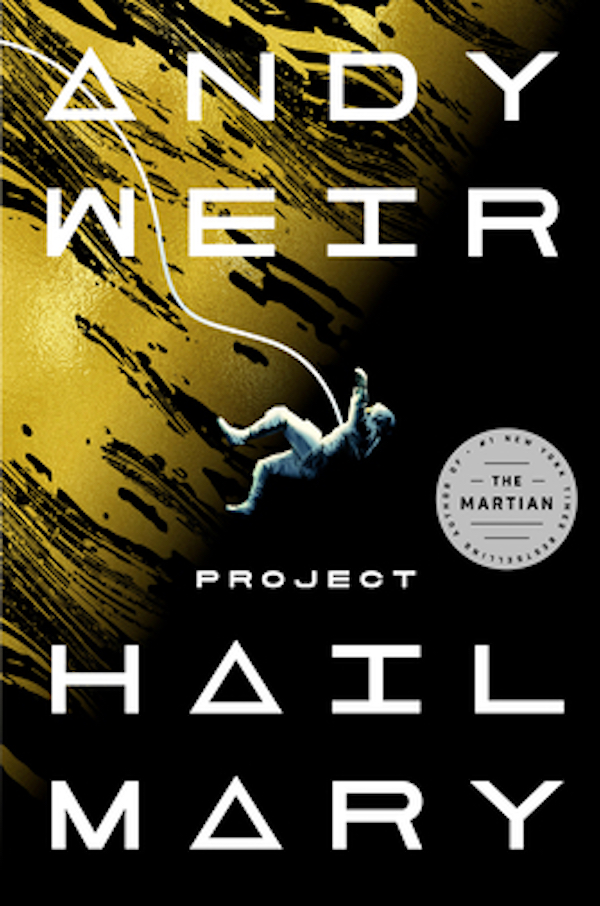
"Project Hail Mary"
Andy Weir
“I penetrated the outer cell membrane with a nanosyringe." "You poked it with a stick?" "No!" I said. "Well. Yes. But it was a scientific poke with a very scientific stick.”
When I attended a panel for the NASA Jet Propulsion Lab at Caltech, a student raised their hand and asked a profoundly important question: "What do you think of the book 'The Martian'?" The JPL scientist's answer: "Project Hail Mary was better." It's certainly close for me. Weir struck gold with "The Martian," and "Project Hail Mary" retains much of the charm of his previous successes. There is noticeably more science in this novel. There's also more science-fiction—the stakes are sky-high (our sun is literally being eaten by special microbes), and without spoilers, it gets crazier from there (in a good way). This book embraces nerdiness and your inner scientist—because despite the fantastical elements, the science itself is surprisingly plausible and well thought-out. The biggest difference for me between Weir's work and other popular science fiction is the tone. Even in the face of fear, potential death, and isolation, our humorous and endearing protagonist tries to stay positive. There's something to be said about a book that's simply fun to read.

"The Way of Kings" (Book 1, The Stormlight Archive)
Brandon Sanderson
“The purpose of a storyteller is not to tell you how to think, but to give you questions to think upon.”
"The Way of Kings" takes place in a fractured world ravaged by hurricanes, where war is constantly being waged to avenge a king that was assassinated. In the backdrop, there is a second war of prejudice similar to a societal caste system. The world of Roshar that Sanderson conjures is fascinating to no end. I am a fan of creative world-building, and his is among the best in the business, with incredibly deep lore and history and diverse cultures. There are creatures like "Spren," manifestations of forces of nature and emotions. Although men maintain patriarchal responsibilities for marriage and battle, societal conventions allow only women to read, giving women control over communication, politics, and history. The story follows three characters: Kaladin, a surgeon turned soldier turned slave who works to overcome his depression and save his squad. Shallan, a thief masquerading as a scholar in search for answers to the secrets about the war and herself. And Dalinar, brother to the late king and a warlord who must determine the meaning of his visions and unite his country. Our characters and their internal and external conflicts all converge in a spectacular and satisfying finale. And that's just the first book—the second is even better. The Way of Kings, and the rest of the Stormlight Archive is not for everyone. It's absurdly long, with each book over 1000 pages. The author has said to think of each book as a trilogy of books together (it even has novellas in-between parts). It's unfinished, which may scare fans still (rightfully) scarred by authors like Patrick Rothfuss and George R.R. Martin. It starts slow. And it's set in a world exceedingly different from our own. But if you like Fantasy, Stormlight may well be the "Wheel of Time" of our generation.